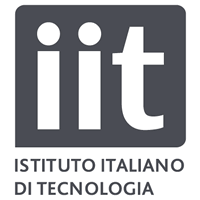We are looking for an enthusiastic PhD student interested in working on non-coding RNAs and chromatin architecture at the Center for Human Technologies @IIT (Genova-Italy).
If you would like to study gene expression regulation in stem cells using cutting-edge chromatin conformation assays as well as genomics and epigenetic engineering tools don’t hesitate to apply!
PhD opening at ARC
IIT invites excellent candidates to apply to its PhD program organized in collaboration with the Open University; this international PhD program confers Doctorates in Health, Sustainable and Human Technologies.
In order to be admitted into the ARC program, the minimum requirements are
- a Masters-level degree, which broadly corresponds to a 4/5-year undergraduate MSc/MChem/Meng-style degree or to a postgraduate Masters in the British system, or to a second level University degree in Italy;
- a grade corresponding to an upper second class (2.1) or a merit in the UK system or 100/110 in the Italian system. Candidates with lower grades but redeeming features (publications, specific expertise) are requested to contact the potential supervisors before applying;
- where English is not the applicant’s first language, a valid IELTS (International English Language Testing System) certificate. The minimum acceptable score is an overall 6.5, with no less than 6.0 in any of the four categories
-
PhD fellow in Non-coding RNAs and chromatin architecture
Project title: The role of non-coding RNAs and epitranscriptomics in shaping 3D chromatin architecture in stem cells.
Background:
Our research is focused on developing and applying cutting-edge genomic technologies to map the 3D organization of chromatin, aiming to understand how RNA shapes the chromatin architecture, through its interaction with DNA and proteins, under physiological and pathological conditions.
The introduction of chromosome conformation capture (3C)-based technologies coupled with sequencing, such as Hi-C and its derivatives, has advanced the field of 3D-genome research by expanding our ability to understand the chromatin architecture at a genome-wide level (1,2). Identifying which factors mediate contacts between regulatory regions, such as enhancers and their target promoters, is crucial in order to better understand the molecular principles governing cell-type-specific gene expression patterns. Several studies showed that transcription factors play an essential role in the formation and maintenance of promoter-enhancer contacts (3). We aim to study, in a genome-wide scale, how non-coding RNAs can shape the 3D genome and dictate transcription.
Description:
We are looking for a motivated PhD student with an enthusiasm to study the fundamental molecular mechanisms of gene transcriptional control. Our research focuses on non-coding elements (such as enhancers and non-coding RNAs) and their contribution in regulating 3D genome architecture and gene expression (4). To address this question we use a variety of chromatin conformation assays such as Hi-C and Hi-ChIP and other high-throughput sequencing techniques (e.g. RNA-seq, ChIP-seq, ATAC-seq) in combination with CRISPR-based genetic and epigenetic engineering tools. Our final goal is to understand how ncRNAs and their epitranscriptomic modifications such as m6A (5,6) can induce and/or maintain 3D promoter-enhancer contacts, which ultimately determines the set of cell-type-specific expressed genes that are important for stemness and tumorigenesis in both mouse embryonic stem cells and human cancer stem cells.
References:
1) Lieberman-Aiden, E. et al. Comprehensive mapping of long-range interactions reveals folding principles of the human genome. Science 326, 289-293 (2009).
2) Mumbach, M.R. et al. HiChIP: efficient and sensitive analysis of protein-directed genome architecture. Nat Methods 13, 919-922 (2016).
3)Di Giammartino, D.C. et al. KLF4 is involved in the organization and regulation of pluripotency-associated three-dimensional enhancer networks. Nat Cell Biol 21, 1179-1190 (2019).
4) Di Giammartino, D.C. et al. Transcription factors: building hubs in the 3D space. Cell Cycle 19, 2395-2410 (2020).
5) Liu, J. et al. N6-methyladenosine of chromosome-associated regulatory RNA regulates chromatin state and transcription. Science 367, 580-586 (2020)
6) Lee, J. et al. Enhancer RNA m6A methylation facilitates transcriptional condensate formation and gene activation. Molecular Cell 81, 1-18 (2021)
Main supervisor: Dafne Campigli di Giammartino (Non-coding RNAs and RNA-based Therapeutics)
Essential expertise:
i. Previous experience in basic biochemistry and molecular biology techniques handling RNA, DNA and proteins.
ii. Experience in cell culture working in sterile conditions
iii. Familiarity with NGS technologies such as ChIP-seq, RNA-seq, ATAC-seq etc
iv. Basic understanding of bioinformatical tools.
Desirable expertise:
i. Previous research experience in RNA biology
ii. Previous experience working with stem cells
iii. Chromatin conformation assays such as Hi-C, Hi-ChIP etc
iv. Ability to analyse and visualize sequencing data using bioinformatical tools
How to apply. Prospective students must submit using the online form the following documents
1) 2-page CV, which includes studies, expertise and achievements.
2) 1-page research statement, which includes the choice of a project from the list above and a justification of the choice. Only if robustly justified, the student may signal their interest also for a second project, but there is no guarantee that this will be taken into account by the selection panel.
3) A transcript of undergraduate and postgraduate studies.
4) A valid IELTS certificate, obtained no more than two years before the proposed registration date.
5) Contact details of two referees.
Application form: https://iit.taleo.net/careersection/ex/jobdetail.ftl?lang=en&job=2200003H
For this position, ARC accepts candidatures on an ongoing basis (first-come, first-served).
Istituto Italiano di Tecnologia, with its headquarters in Genoa, Italy, is a non-profit institution with the primary goal of creating and disseminating scientific knowledge and strengthening Italy's technological competitiveness. IIT's research endeavour focuses on high-tech and innovation, representing the forefront of technology with possible application from medicine to industry, computer science, robotics, life sciences and nanobiotechnologies.
Istituto Italiano di Tecnologia is an Equal Opportunity Employer that actively seeks diversity in the workforce.
Please note that the data that you provide will be used exclusively for the purpose of professional profiles’ evaluation and selection, and in order to meet the requirements of Istituto Italiano di Tecnologia. Your data will be processed by Istituto Italiano di Tecnologia, based in Genoa, Via Morego 30, acting as Data Controller, in compliance with the rules on protection of personal data, including those related to data security.

 Continue with Facebook
Continue with Facebook



